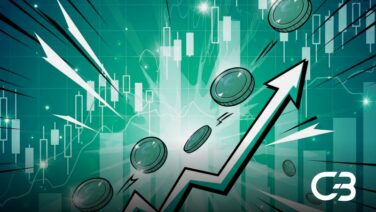A trader’s outlook plays a role in each decision regarding unpredictability and volatility within the market. Moreover, emotional control affects profit potential and risk management. Developing mental strength establishes a foundation of success in trading.
What Is Trading Psychology?
Trading psychology is the science of emotion and thought that propagates to the market and risk management decisions. It deals with the effects of fear and greed on behavior in the case of sudden price changes. Cognizance of this area makes traders capable of placing emotion against rationality.
This field offers mechanisms for the application of mental protection under pressure. It is what determines habits that will enhance the decisions that are being made regularly. As a result, the traders become less subject to sudden movements and preserve their capital in the long term.
Recognizing Emotional Traps
Emotional traps occur when emotions take precedence over discipline and planning. Traders can adhere to their game plans and protect cash by anticipating such patterns.
- Fear of Missing Out (FOMO)
Their panicked fear of losing out on profits pushes traders into rallies. This urge usually goes around the adequate analysis, and the result is overpaid entries and losses.
- Herd Mentality
Copying the crowd replaces independent research with popular opinion. At market extremes, this pattern is exaggerated, and it leads to premature entries or exits.
- Impulsive Trading
Spontaneous orders increase transaction costs and disrupt long‑term plans. These kinds of actions tend to occur after emotional peaks and compromise strategic consistency.
- Ignoring Stop‑Losses
Skipping exit rules turns small setbacks into large drawdowns. The risk controls suffer from ignoring predefined stops and putting portfolio health at risk.
- Chasing Losses
Doubling up in case of a loss is an effort to get back fast, but it intensifies the risk. Revenge trading impairs an awareness of changing market conditions and increases losses.
- Premature Profit‑Taking
Above all, exiting when the odds are not in their favor will rob them of more profit and create guilt. It is a belief that stems mostly out of fear of returning losses and that reduces performance.
Building a Robust Trading Framework
- Establishing Clear Trading Rules
Before the entry into the market, traders need to specify entry and exit criteria as well as the sizing of the positions. These rules act as objective guardrails during high‑pressure sessions. They ensure consistent application of strategy under all conditions.
Stop-loss and take-profit orders may be associated with the technical analysis that helps to discipline risk-taking. Limiting daily exposure through fixed capital percentages prevents overtrading. This structured approach builds accountability and confidence.
- Practicing Mindful Reflection
Smart breathing practice resets concentration and eliminates stressful feelings during live trading. Traders can schedule brief pauses after completing each trade. These pauses refresh the mind and avoid rushed and emotionally candid judgment.
The practice of checking journal entries regularly will point out emotional triggers and decision outcomes that require attention. Traders then implement targeted behavioral adjustments for future trades. This reflective process strengthens discipline and resilience.
- Reviewing and Adjusting Strategies
Outcomes are compared to measures, such as win rate and drawdown, in regular performance reviews. This information is used by traders to identify areas of weakness and refine rules. Data‑driven adjustments enhance strategy effectiveness over time.
Asking peers or being mentored will bring in a variety of opinions and expose personal hidden prejudices. Collaborative discussion validates successful tactics and highlights improvement areas. Consequently, traders accelerate learning and maintain disciplined growth.
How to Use Trading Psychology for Better Trades
The application of psychological principles in everyday practices improves the quality of trade and uniformity. As an example, a pre-session reflection helps consider emotional states that can influence decision-making. This means that merchants will be able to alter their trial before making an order.
Additionally, role-plays or working out scenarios will reveal the hand of visceral responses to market pressure without endangering capital. Traders are requested to study these drills to perfect coping and mental procedures. Thus, consistent simulation practice entrenches disciplined reactions to live market issues.
Adding technical checklists to emotion-tracking logs helps form a balanced assessment framework. The resulting combination approach gets traders to use not only data metrics, but internal triggers as well in every trade. Finally, this two-track knowledge building creates a general level of awareness and smarter implementation.
Conclusion
Consistent mental discipline transforms emotional reactions into strategic assets. Periodic self‑review and structured rules maintain performance under stress. Integrating mindfulness builds resilience for volatile market conditions. A strong trader psychology will save money and lead to a successful long-term performance.










